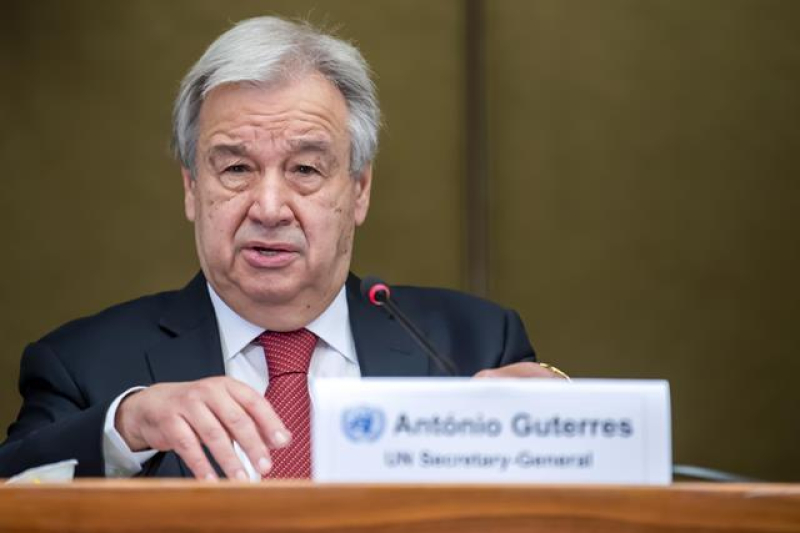- NCP Demands Impeachment, Arrest of President |
- PM Pledges to Modernise, Strengthen Border Force |
- Dhaka Tops Global Pollution List with Hazardous Air |
- Country Observes Martyred Army Day Today |
- 100 CSOs rally against Trump’s trade tactics, urge access to drugs |
A free press is not a choice, but a necessity: Guterres

A free press is not a choice, but a necessity: Guterres
Dhaka, May 1 - UN Secretary General Antonio Guterres has called on governments, the private sector and civil society to join them in reaffirming their commitment to safeguarding press freedom and the rights of journalists and media professionals around the world.
"A free press is not a choice, but a necessity. Our World Press Freedom Day is very important," he said in a message marking the World Press Freedom Day that falls on May 3.
Without facts, the UN chief said, they cannot fight mis- and disinformation.
"Without accountability, we will not have strong policies in place. Without press freedom, we won't have any freedom," he said.
The world is going through an unprecedented environmental emergency which poses an existential threat to this and future generations, Guterres observed.
People need to know about this – and journalists and media workers have a key role in informing and educating them.
Local, national and global media outlets can highlight stories about the climate crisis, biodiversity loss, and environmental injustice.
"Through their work, people come to understand the plight of our planet, and are mobilized and empowered to take action for change," said the UN chief.
He said media workers also document environmental degradation and they provide evidence of environmental vandalism that helps to hold those responsible to account.
"It is no surprise that some powerful people, companies and institutions will stop at nothing to prevent environmental journalists from doing their jobs. Media freedom is under siege," Guterres said.
And environmental journalism is an increasingly dangerous profession, he said.
Dozens of journalists covering illegal mining, logging, poaching and other environmental issues have been killed in recent decades.
In the vast majority of cases, no one has been held to account. UNESCO reports that in the past fifteen years, there have been some 750 attacks on journalists and news outlets reporting on environmental issues. And the frequency of such attacks is rising.
Legal processes are also misused to censor, silence, detain and harass environmental reporters, while a new era of climate disinformation focuses on undermining proven solutions, including renewable energy.
"But environmental journalists are not the only ones at risk. Around the world, media workers are risking their lives trying to bring us news on everything from war to democracy," said the UN Secretary General.
He said he is shocked and appalled by the high number of journalists killed in Israeli military operations in Gaza.
The United Nations recognizes the invaluable work of journalists and media professionals to ensure that the public is informed and engaged.-UNB

